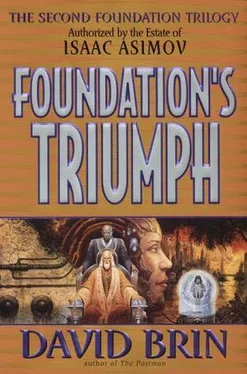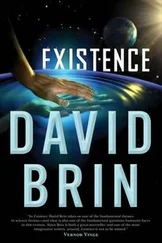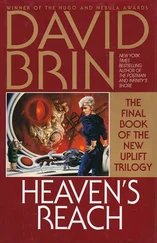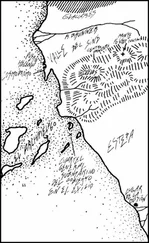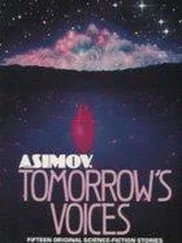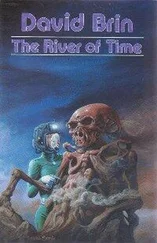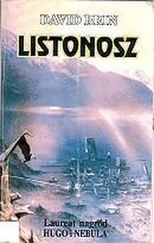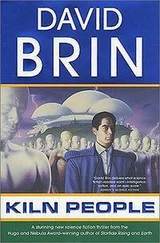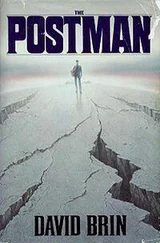David Brin - Foundation’s Triumph
Здесь есть возможность читать онлайн «David Brin - Foundation’s Triumph» весь текст электронной книги совершенно бесплатно (целиком полную версию без сокращений). В некоторых случаях можно слушать аудио, скачать через торрент в формате fb2 и присутствует краткое содержание. Год выпуска: 1999, ISBN: 1999, Издательство: Harper Prism, Жанр: Фантастика и фэнтези, на английском языке. Описание произведения, (предисловие) а так же отзывы посетителей доступны на портале библиотеки ЛибКат.
- Название:Foundation’s Triumph
- Автор:
- Издательство:Harper Prism
- Жанр:
- Год:1999
- ISBN:ISBN: 0-06-105241-8
- Рейтинг книги:4 / 5. Голосов: 1
-
Избранное:Добавить в избранное
- Отзывы:
-
Ваша оценка:
- 80
- 1
- 2
- 3
- 4
- 5
Foundation’s Triumph: краткое содержание, описание и аннотация
Предлагаем к чтению аннотацию, описание, краткое содержание или предисловие (зависит от того, что написал сам автор книги «Foundation’s Triumph»). Если вы не нашли необходимую информацию о книге — напишите в комментариях, мы постараемся отыскать её.
Foundation’s Triumph — читать онлайн бесплатно полную книгу (весь текст) целиком
Ниже представлен текст книги, разбитый по страницам. Система сохранения места последней прочитанной страницы, позволяет с удобством читать онлайн бесплатно книгу «Foundation’s Triumph», без необходимости каждый раз заново искать на чём Вы остановились. Поставьте закладку, и сможете в любой момент перейти на страницу, на которой закончили чтение.
Интервал:
Закладка:
“Throughout history, there has been one way to defeat ruling classes,” Sybyl continued. “By taking their technologies of oppression and liberating them! By spreading them to the masses. If a few ancient robots can read minds, why not mass-produce the technique and give it to everybody? Let each citizen have a brain-augmenting helmet! Pretty soon, people would all be telepaths. We’d develop shields for when we want privacy, but the rest of the time…imagine what life would be like. The instant exchange of information. The wealth of ideas!”
Sybyl had to stop at last because she grew quite breathless. Hari, on the other hand, mused at the image she presented.
If mentalic powers ever spread openly, to be shared by all, psychohistory would have to be redrawn from the ground up. A science of humanics might still be possible, but it would never again be based on the same set of assumptions-that trillions of people might interact randomly, ignorantly, like complex molecules in a cloud of gas. Self-awareness-and intimate awareness of others-would make the whole thing vastly more complicated. Unless
I suppose it could manifest in either of two ways. Telepathy might wind up simplifying all equations, if it wrought uniformity, coalescing all minds into a single thought-stream. …
Or else it could wind up enhancing complexity exponentially! By allowing mentation to fraction into diverse internal and externally shared modes, compartmentalizing and then remerging them in multiple diversity frames.
I wonder if the two approaches could be modeled and compared by setting up a series of cellular mathetomatons…
Hari resisted a delicious temptation to immerse himself in the details of this hypothetical scenario. He lacked both the tools and enough time.
Of course, the sudden appearance of several hundred mentalically talented humans on Trantor, a generation ago, was no coincidence. Since nearly all were soon gathered in Daneel’s circle, one could surmise that the Immortal Servant planned weaving psychic ability into the human race… though not in the spasmodically democratic way Sybyl envisioned.
Hari sighed. Either prospect meant an end for his life’s work, the beautiful equations.
Hari turned back to A Child’s Book of Knowledge, trying to ignore the noise and mutterings from other occupants of the lounge. He was delving into the Transition Age, a time just after the first great techno-renaissance, when waves of riots, destruction, and manic solipsism ruined the bright culture that created Daneel’s kind. On Earth it led to martial law, draconian suppression, a public recoiling against eccentricity and individuality-combined with waves of crippling agoraphobia.
At the time, things seemed different for the fifty Spacer worlds. On humanity’s first interstellar colonies, millions of luckier humans lived long, placid lives on parklike estates, tended by robotic servants. Yet Hari’s derivations showed the Spacers’ paranoiac intolerance-and overdependence on robotic labor-were just as symptomatic of trauma and despair.
Into this era came Daneel Olivaw and Giskard Reventlov, the first mentalic robot, both of them programmed with unswerving devotion to the afflicted master race. Hari didn’t understand everything that happened next. But he wanted to. Somehow, a key to deeper understanding lay hidden in that age.
“Forgive me for interrupting, Professor,” a voice came from over his shoulder, “but it is time. We must put you in the rejuvenator.”
Hari’s head jerked up. It was Gornon Vlimt-or rather R. Gornon Vlimt, the robot who had taken on that human’s appearance.
This Gornon wanted to give him another treatment in the coffinlike machine from Ktlina, but with some additional tricks that his secretive band of heretic machines had been hoarding across the centuries.
“Is it really necessary?” Hari asked. His instinct for self preservation had ebbed after events two days ago, when logic forced him to perform a loathsome act. Destroying-or sanctioning the destruction of-so much precious knowledge for humanity’s ultimate good.
“I’m afraid it is,” R. Gornon insisted. “You will need a great deal more stamina for what comes next.”
Hari felt a momentary shiver. This didn’t sound inviting. Long ago, he used to enjoy adventures-dashing around the galaxy, challenging enemies, overcoming their nefarious schemes, and chasing down secrets from the past-while complaining the whole time that he’d much rather be swaddled in his books. But in those days Dors had been by his side. Adventure held no attraction now, and he wasn’t sure that he wanted to see much more of the future.
“Very well, then,” he said, more out of politeness than out of any sense of obligation. “My life was guided by robots. No sense in ending such a long habit at this late stage in the game.”
He got up and moved his weary body toward sick bay, where a white box waited, its lid gaping like the cover of a crypt. He noted that there were actually two indentations within, as if it had been built for a pair of bodies, not just one.
How cozy, he mused.
As R. Gornon helped him lie within, Hari knew this was a point of transition. Whether or not he awoke-whenever or in whatever shape he reemerged-nothing would ever be the same.
6.
The Thumartin Nebula was a maelstrom of debris and dissipating plasma. Something violent had happened there recently-perhaps a great space battle-to leave such a mess behind. Instruments told of many hyperdrive engines having overloaded, just a couple of days ago, exploding spectacularly. Yet, because it occurred inside a coal-dark cloud, no one in the galaxy would ever know.
No humans, that is. Already the cryptic hyperwave channels used by robots were abuzz with news that the archives and terraformers had been destroyed at last.
Dors surveyed the scene with churning sensations of confusion and anxiety. Hari had been here, either just before or during that violent episode. If Dors had been human, her guts would have tied in knots of anxiety. As it was, her simulation programs automatically put her through exactly the same suite of ersatz emotions.
“This place…it feels like home, Dors. Somehow I know that Voltaire and I spent many long centuries here, slumbering, until someone called us back to life again. “
The voice came from a nearby holographic image, depicting a young woman with short-cropped hair, wearing a suit of medieval armor.
Dors nodded. “One of Daneel’s agents must have taken your archive from here to Trantor, as part of a scheme I knew nothing about. Or perhaps your unit drifted free and was picked up by a passing human ship. Taken to some unsuspecting world, where enthusiasts carelessly unleashed the contents.”
The holographic girl chuckled.
“You make me sound so dangerous, Dors. “
“You and the Voltaire sim triggered chaos in Junin Quarter, and on Sark. Even after Hari banished you both to deep space, a copy of Voltaire somehow infected and altered Lodovic Trema. Oh, you are creatures of chaos, all right.”
Joan of Arc smiled. She gestured toward the devastation visible outside the view ports.
“Then I assume you approve of all this destruction. May I ask why you keep me around in that case?”
Dors remained silent.
“Perhaps because you are, at last, ready to face troublesome questions? During the long years I spent in company with Voltaire, neither of us could change the other’s view on fundamental matters. I am still devoted to faith, as he is to reason. And yet, we learned from each other. For example, I now realize that both faith and reason are dreams arising from the same wistful belief “
Читать дальшеИнтервал:
Закладка:
Похожие книги на «Foundation’s Triumph»
Представляем Вашему вниманию похожие книги на «Foundation’s Triumph» списком для выбора. Мы отобрали схожую по названию и смыслу литературу в надежде предоставить читателям больше вариантов отыскать новые, интересные, ещё непрочитанные произведения.
Обсуждение, отзывы о книге «Foundation’s Triumph» и просто собственные мнения читателей. Оставьте ваши комментарии, напишите, что Вы думаете о произведении, его смысле или главных героях. Укажите что конкретно понравилось, а что нет, и почему Вы так считаете.
